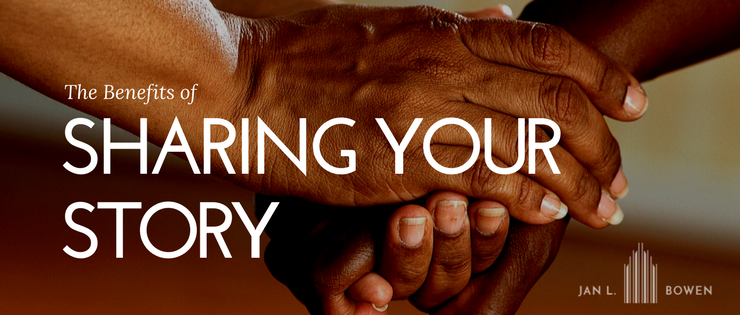
Can you dare yourself to rise to the challenge to speak up? We all have a story. It’s what makes us a person with a history. Our story is our tale of how we got to be who we are and what happened along the way.
Within that story is often a message. A message that the community we are all part of needs to hear. And a message that we each need to tell. That’s the challenge — daring yourself to rise up and tell your story. Can you dare yourself to do it?
Why is it so important to rise up and speak?
Why so much emphasis on telling your story?
By listening we learn
It takes two (or more) to communicate — the speaker and the listener. The people around us teach us. Regardless of how we feel or what we think of what they say, we learn from it. When someone else shares their story, we are placed in a position of listening — and deciding.
Do we judge them for their story, do we take action from what they said, does their story prompt us to feel differently towards them? Or, do we have a different perspective on our experience after having listening to their story? Regardless of our answer, we cannot remain untouched. By listening to another’s spoken story, we learn.
Conversation is important to me. Through it we form connection. When we listen to someone else — really listen — we’ve let go of what our story is and focused on them.
Isn’t it possible that we, in fact, might learn best from other people and their story? If we learn from them, what might they learn from us?
We also learn by speaking
When we share our story, we have an opportunity to bring together the various components of our personal history and create a new order and sense for others. Our attachment and meaning to our story changes once we release it to others.
We see that our story telling can impact other people
What we think of as a personal tale is no longer isolated to us. This connects us in a large way to humanity and expands the sense of us.
We make sense of the pattern of events
In our memory, events are connected in subconscious and conscious patterns. Telling the story logically creates a pattern in which we are able to make sense of it for others to understand, also.
For traumatic events or difficult events that occurred in childhood, this can be a healing experience as the brain has an opportunity to create regular connections and we find reassurance.
In the Life of Purpose series where I profile individuals living a life true to their purpose, Carol Cox of Speaking Your Brand, refers to “excavating your stories“. What better way is there to describe the process of taking your story, mining the elements to form a meaningful pattern, and creating a message with which to speak?
We reaffirm our values
When we put our story in the context of speaking a message, the unessential parts of it go to the side and what is left is what we stand for — our values. By stating the message, we reaffirm to ourselves the values by which we live.
The world needs to come together
We’re more similar than disparate. But how do we know that when we’re silent? And how do we acknowledge the essential elements of us that are in fact very different that need to be distinguished if everyone stays mute?
When we tell our story we are unfolding the uniqueness of us and within each of those tales is the treasure that includes all the secrets and the answers that make us whole. Why am I saying we should tell our stories now?
That’s why the world needs to hear stories now. The world is a place that seems complicated but at its base remains simple. Its simplicity remains in the human story.
We’re all connected through our humanity. While the specifics of how we each got to where we are is unique, the fact that we are all human combines and connects us. When we start with that commonality it helps by providing a base of understanding from which to hear the differences, and distinguish those elements of distinction.
If we listen from a common base, compassion has a chance to enter. We might see that there are ways through issues and anger. We might understand. It all starts with story — spoken.
What stops us from speaking?
With these benefits available to us, why don’t we speak up? It’s pretty simple:
Fatigue
Routine can take its toll. Getting caught up in daily responsibilities has the potential of robbing our energy — particularly if those routines aren’t focused on the core of what is most important in your life.
Life is a full circle that way. We’re meant to speak up for what we believe in — for who we are — our truth and our story. When we don’t, we can feel tired. (That’s why I’m an advocate of building a Template of Alignment that supports your purpose in life.)
Fear
Sometimes, though, we know what we stand for and are so aware of what to say and it is just scary! That happens. No way out of that except through it. But you don’t need to suffer through it alone. You can get support.
Not knowing how
We all need help sometimes crafting how to speak our message. Knowing your story is one thing — it’s your story. If your story carries a message you need to tell and you don’t know how, enlist help. It can be next to impossible to do this on your own because the nature of communication includes listening — and that includes another person.
The important thing is not to let fatigue (or denial), fear, or lack of skill paralyze you from moving forward. If you need help, get help.
Where does it all lead?
We never know where the threads of following our purpose and telling our message will lead. What we do know is that they will continue to lead us to a truth where we can live comfortably with ourself. When we live in integrity with our values we can maintain a sense of equilibrium and peace of mind.
Take a look at how Carol’s work helps women bring together the tools specifically so they do know how to rise up to the challenge to speak their message. She empowers women so they have specifically what they need in order to be in positions of leadership — positions they would be qualified but possibly not equipped for without her help.
There’s always a reason behind what drives us. Carol’s is that she saw women who were disenfranchised not having a voice, left by the side when she was a young girl. She herself was one. She knew she could use her skills and talents to make a difference and give them a voice.
Now she does that for entrepreneurs (of whom she is one) and executives, but also as a political analyst and community activist. Speaking up for Carol suffuses every aspect of life. It is what she does and also who she is. Her story is her message. So is yours.
Do you know how to tell your story?
For resources on how to craft your message, start with Carol’s podcast and community. Her insight, perspective, and depth of information make her tools and resources valuable regardless of whether you’re speaking to a crowd or to your friends. She provides the link of clarity between knowing your story and speaking your message.
Isn’t it time to rise up? Isn’t it time to dare yourself?
Ready to speak up but need some help? Two options: a self-guided way through life is offered in It’s Not that Complicated: How to Create a Personalized Template of Alignment or get full support through coaching. Start with a Clarity Session or more.




